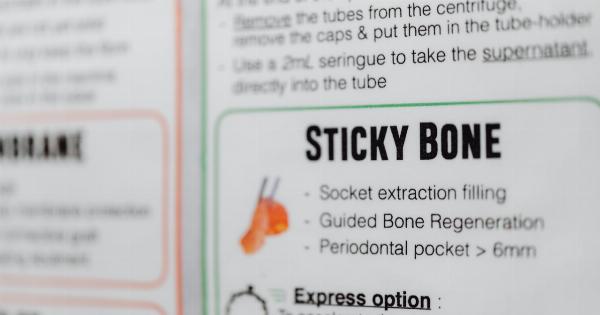Menopause is a normal and natural transition that every woman experiences as she reaches the end of her reproductive years. It marks the end of menstruation and fertility, resulting from a gradual decline in the function of the ovaries.
Menopause usually occurs between the ages of 45 and 55, with an average age of 51. While menopause is a natural part of life, the physical and emotional symptoms that accompany it can be challenging for many women.
Physical Symptoms of Menopause
Menopause brings about a range of physical symptoms, which can vary in intensity and duration from woman to woman. The most common physical symptoms include:.
- Hot Flashes: Hot flashes, or sudden feelings of warmth and intense sweating, are experienced by approximately 75% of menopausal women. They can last for several minutes and are often accompanied by flushing of the face and neck.
- Night Sweats: Similar to hot flashes, night sweats cause excessive sweating during sleep, leading to disrupted sleep patterns and feelings of fatigue throughout the day.
- Irregular Periods: As women approach menopause, their menstrual cycles may become irregular, with shorter or longer periods between periods, heavier or lighter bleeding, or skipped periods altogether.
- Vaginal Dryness: The decrease in estrogen levels during menopause can lead to vaginal dryness, which may cause discomfort during sexual intercourse.
- Urinary Problems: Menopause can increase the risk of urinary tract infections, urinary incontinence, and frequent urination.
- Changes in Mood: Fluctuating hormone levels can contribute to mood swings, irritability, feelings of sadness, and increased anxiety or depression.
- Weight Gain: Many women experience weight gain during menopause, particularly around the abdominal area.
- Bone Density Loss: Estrogen plays a crucial role in maintaining bone density, so the decline in estrogen levels during menopause can lead to bone loss and increase the risk of osteoporosis.
Emotional and Psychological Symptoms of Menopause
Menopause not only affects women physically but also emotionally and psychologically. It is not uncommon for women to experience the following emotional and psychological symptoms:.
- Mood Swings: Hormonal fluctuations during menopause can cause rapid shifts in mood, leading to heightened emotions and mood swings.
- Anxiety and Depression: The hormonal changes during menopause can also contribute to feelings of anxiety, sadness, and even depression. It is essential to seek support and professional help if these symptoms become severe and long-lasting.
- Difficulty Concentrating: Many women going through menopause report lapses in memory, difficulty concentrating, and overall cognitive changes.
- Decreased Libido: The decline in estrogen levels can lead to a decrease in sexual desire and arousal.
- Loss of Identity: Menopause can sometimes trigger feelings of loss or a sense of losing one’s youth and fertility, which can impact a woman’s overall self-esteem and sense of identity.
Coping Mechanisms for Dealing with Menopause
While menopause symptoms can be challenging, there are various coping mechanisms that can help women navigate this transition with more ease and comfort.
1. Healthy Lifestyle Habits
Adopting and maintaining healthy lifestyle habits can significantly alleviate menopausal symptoms. This includes:.
- Eating a Balanced Diet: Consuming a diet rich in fruits, vegetables, whole grains, and lean proteins can provide the necessary nutrients to support overall well-being. It is also essential to limit the intake of caffeine, alcohol, and spicy foods, as they can trigger hot flashes and worsen mood symptoms.
- Regular Exercise: Engaging in regular physical activity, such as walking, swimming, yoga, or dancing, can help manage weight, improve mood, and enhance overall physical and mental well-being.
- Getting Adequate Sleep: Establishing a consistent sleep routine and creating a relaxing environment can improve the quality of sleep and alleviate symptoms such as night sweats and fatigue.
- Stress Reduction Techniques: Practicing stress reduction techniques like meditation, deep breathing exercises, or engaging in hobbies can help alleviate anxiety and promote emotional well-being.
2. Hormone Replacement Therapy (HRT)
Hormone replacement therapy (HRT) involves taking estrogen and progesterone medications to replace the hormones that decline during menopause. HRT can effectively alleviate many physical and emotional menopausal symptoms.
However, it is important to consult with a healthcare professional to determine if it is the right option based on individual health history and risk factors.
3. Alternative Therapies
Many women find relief from menopause symptoms through alternative therapies. These can include:.
- Herbal Supplements: Certain herbal supplements, such as black cohosh and red clover, have been found to reduce hot flashes and promote hormonal balance. However, it is important to consult with a healthcare professional before starting any herbal supplement.
- Acupuncture: Acupuncture involves the insertion of thin needles into specific points in the body to help alleviate various symptoms associated with menopause.
- Yoga and Meditation: Practicing yoga and meditation can help reduce stress, alleviate mood symptoms, and promote overall well-being.
4. Supportive Relationships
Seeking support from loved ones and joining menopause support groups can provide a sense of belonging, validation, and understanding.
Connecting with others who are going through the same experience can be empowering and offer practical tips for coping with menopause.
5. Talk to a Healthcare Professional
If menopausal symptoms are significantly impacting daily life and well-being, it is crucial to consult with a healthcare professional.
They can provide individualized advice, prescribe appropriate medications if necessary, and help manage any underlying health conditions that may be exacerbating menopausal symptoms.
Conclusion
Menopause is a natural transition that every woman goes through, but it is not without its challenges. Understanding the physical, emotional, and psychological symptoms of menopause is the first step in developing effective coping mechanisms.
By adopting a healthy lifestyle, considering hormone replacement therapy or alternative therapies, seeking support from loved ones, and consulting with healthcare professionals, women can navigate the menopausal journey with grace and resilience.


























